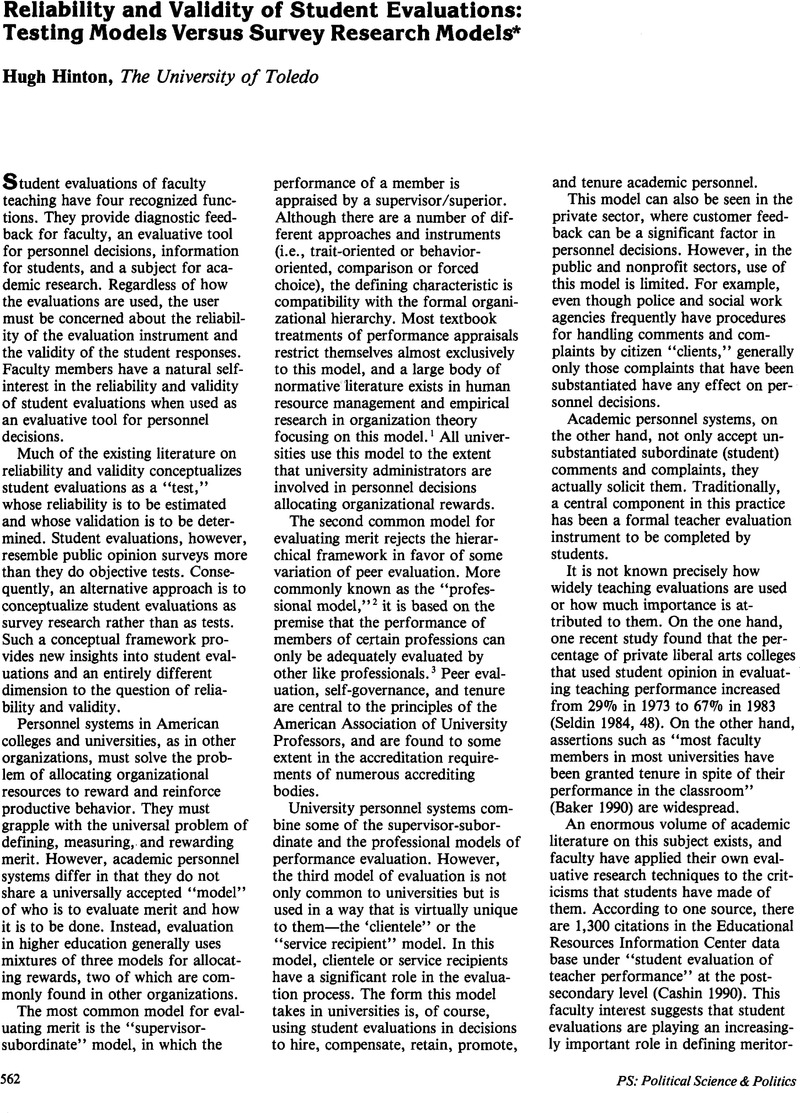Crossref Citations
This article has been cited by the following publications. This list is generated based on data provided by Crossref.
Kolitch, Elaine
and
Dean, Ann V.
1999.
Student ratings of instruction in the USA: Hidden assumptions and missing conceptions about ‘good˚s teaching.
Studies in Higher Education,
Vol. 24,
Issue. 1,
p.
27.
Snare, Charles E.
2000.
An Alternative End-of-Semester Questionnaire.
PS: Political Science & Politics,
Vol. 33,
Issue. 4,
p.
823.
Baldissera, Alberto
2004.
La valutazione nelle università italiane: processi organizzativi ed indicatori.
Quaderni di Sociologia,
p.
5.
Cohen *, Erik H.
2005.
Student evaluations of course and teacher: factor analysis and SSA approaches.
Assessment & Evaluation in Higher Education,
Vol. 30,
Issue. 2,
p.
123.
Parpala, Anna
Lindblom‐Ylänne, Sari
and
Rytkönen, Henna
2011.
Students’ conceptions of good teaching in three different disciplines.
Assessment & Evaluation in Higher Education,
Vol. 36,
Issue. 5,
p.
549.
Surgenor, P.W.G.
2013.
Obstacles and opportunities: addressing the growing pains of summative student evaluation of teaching.
Assessment & Evaluation in Higher Education,
Vol. 38,
Issue. 3,
p.
363.
Espey, Molly
2018.
Enhancing critical thinking using team-based learning.
Higher Education Research & Development,
Vol. 37,
Issue. 1,
p.
15.
Bobe, Belete J.
and
Cooper, Barry J.
2020.
Accounting students’ perceptions of effective teaching and approaches to learning: impact on overall student satisfaction.
Accounting & Finance,
Vol. 60,
Issue. 3,
p.
2099.
Li, Kam Cheong
Wong, Billy T.M.
and
Liu, Mengjin
2024.
A multi-dimensional analytics approach to course evaluation.
p.
421.



